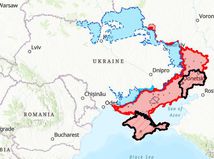By Matti Häyry.
Twenty year ago, on 2 August 2004, I published in the Journal of Medical Ethics an article apparently presenting the first modern formulation of the so-called risk argument against having offspring. In commemoration of this formidable moment in history, I wrote a sequel better in line with today’s attention economy.
Introduction
Illness, according to the Merriam-Webster dictionary, is “an unhealthy condition of body or mind”. Health, according to the World Health Organization (WHO), is “a state of complete physical, mental and social well-being.” Life, according to any realistic account, is not characterised by complete physical, mental and social well-being. It is, in other words, an unhealthy condition of body and mind. It is an illness.
Possible objections to this conceptually valid conclusion include the following. Illness, beyond its Merriam-Webster dictionary definition, should be seen as a deviation from normal functioning. It does not make sense to call ordinary existence an illness. And the WHO, immediately after the opening declaration paragraph, goes on to specify that its goal is “the highest attainable standard of health” instead of perfection.
I challenge these objections. The Merriam-Webster and WHO definitions are utterly representative and sensible as they are. Requiring additions to them is possible but not logically necessary.
Ordinary existence means being ill
If ordinary existence is physically, mentally and socially trying, then being ill, having an illness, describes the experience quite aptly. We are not used to thinking like this, but that is because we attempt to adapt to our prevailing situation. Individuals with allergies do not necessarily call themselves ill, but there is no reason why they should not be called that. An illness overshadows their existence.
This observation can be extended to life. Every living being is constantly, throughout its life, on the back foot. There is always a frustrated need that has to be satisfied. Once one has been satisfied, a new one emerges, relentlessly, for as long as the individual lives. The state of complete physical, mental and social well-being is never reached. There is nothing particularly tragic about this, but it is how things are.
No deviations from normal functioning are needed for being ill, when normal functioning in and of itself can, in eminently ordinary terms, be interpreted as an illness.
Physicians know that ordinary existence means being ill
For the medical profession, this is self-evident. Being responsible for the well-being of one’s patients in a good community-care setting means steady vigilance against illness both now and in the future. Diseases are cured, disabilities are compensated for, symptoms are relieved, and future adversity is prevented when possible without violating the population’s rights and autonomy. It is an ongoing battle against illness.
There is no contradiction between the first and second paragraphs of the WHO declaration. All healthcare professionals can do, of course, is to pursue the highest attainable level of health. They cannot do the impossible. By recognising the ongoing battle, however, they also acknowledge the truth of the conceptual claim that life, as an unhealthy condition of body and mind, is an illness.
When being ill means not being healthy on every criterion set and the reality is that the criteria are never fully met, the conclusion is inescapable.
It is all in the prevention
Admitting that life is an illness does not have any implications on the duties of physicians and other healthcare professionals as far as diseases and disabilities are concerned. Causes of poor health must be removed when possible and in the case of permanent conditions symptoms must be relieved and adaptations be made to enable the well-being of the patients and the population.
Medical attitudes towards the prevention of this particular kind of illness could be in order, though. Since being born means entering an existence of illness, the rationality and morality of creating new lives should perhaps be reconsidered. If illness ought to be eliminated and mitigated when possible, prevention would be the most effective way of achieving this. No new lives, no new future illness.
It remains to be said that my conclusion here is hypothetical. If we believe that the two definitions are representative, then we have reason to believe that new lives mean new illness and ought to be avoided.




















Celá debata | RSS tejto debaty